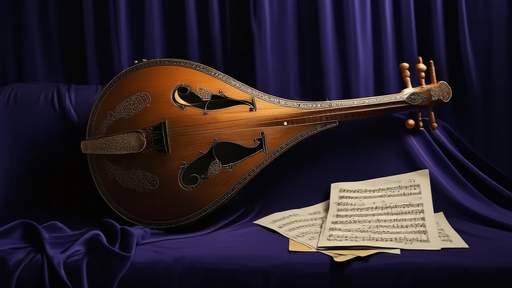The Ottoman military band, known as the Mehter, stands as one of the most iconic and fearsome musical ensembles in history. Rooted in the traditions of the Janissaries, the elite corps of the Ottoman Empire, the Mehter was far more than a musical performance—it was a psychological weapon, a symbol of imperial power, and a cultural institution that endured for centuries. The deep, resonant blasts of its brass instruments, combined with thunderous percussion, were designed to intimidate enemies and inspire Ottoman troops on the battlefield. To understand the Mehter is to delve into the heart of Ottoman military dominance and its lasting influence on both Eastern and Western musical traditions.
The Origins and Evolution of the Mehter
The Mehter’s origins trace back to the early days of the Ottoman Empire, with its structure formalized under Orhan Gazi in the 14th century. As the Janissaries grew into a formidable military force, the Mehter became an inseparable part of their identity. The ensemble was not merely an accompaniment to war but a strategic tool. Its music was engineered to project the Sultan’s authority, both within the empire and beyond its borders. The sound of the Mehter was so distinctive that European armies later adopted elements of its instrumentation, leading to the development of modern military bands.
The ensemble typically included a variety of instruments, with brass and percussion dominating. The zurna (a piercing double-reed wind instrument), the boru (a long trumpet), and the kös (a massive kettledrum) produced a sound that could carry across vast distances. This auditory assault was carefully calibrated to disorient and demoralize enemy forces before combat even began. The psychological impact of the Mehter’s music was so profound that opposing armies often reported feeling unnerved by its relentless, rhythmic intensity.
The Mehter as a Psychological Weapon
Warfare in the Ottoman Empire was as much about perception as it was about physical confrontation. The Mehter embodied this principle. Its performances were meticulously choreographed to maximize intimidation. The deep, droning tones of the brass instruments created an atmosphere of impending doom, while the relentless percussion mimicked the cadence of an advancing army. For enemies unfamiliar with such a display, the effect was paralyzing.
Historical accounts from European observers describe the Mehter’s music as "otherworldly" and "terrifying." The ensemble often played continuously during sieges, its sound waves battering the morale of defenders trapped within fortress walls. The Janissaries themselves drew strength from the Mehter’s rhythms, which were believed to invoke divine favor and martial fervor. This dual function—instilling fear in enemies while emboldening allies—made the Mehter an indispensable component of Ottoman military strategy.
Cultural Legacy and Modern Revival
Despite the dissolution of the Janissary corps in 1826, the Mehter’s legacy endured. Its influence can be heard in the military marches of Europe, particularly in the works of composers like Mozart and Beethoven, who were fascinated by Ottoman musical motifs. Today, the Mehter is celebrated in Turkey as a symbol of national heritage. The modern Mehterân Bölüğü, a ceremonial unit of the Turkish Armed Forces, performs in historical attire, preserving the music and traditions of their ancestors.
Performances by contemporary Mehter bands attract thousands of spectators, both in Turkey and abroad. The visceral power of the music remains undiminished, a testament to its original design. For modern audiences, the Mehter offers a glimpse into the grandeur and terror of the Ottoman Empire at its height. It serves as a reminder that music, when wielded with precision, can be as formidable as any weapon of war.
The Mehter’s story is one of innovation, intimidation, and endurance. From the battlefields of the 14th century to concert stages today, its brass and percussion have echoed across time, leaving an indelible mark on history. To hear the Mehter is to experience the sound of empire—a sound that once commanded fear and now commands respect.

By /Jun 6, 2025

By /Jun 6, 2025

By /Jun 6, 2025

By /Jun 6, 2025

By /Jun 6, 2025

By /Jun 6, 2025

By /Jun 6, 2025

By /Jun 6, 2025

By /Jun 6, 2025

By /Jun 6, 2025

By /Jun 6, 2025

By /Jun 6, 2025

By /Jun 6, 2025

By /Jun 6, 2025

By /Jun 6, 2025

By /Jun 6, 2025

By /Jun 6, 2025

By /Jun 6, 2025

By /Jun 6, 2025

By /Jun 6, 2025